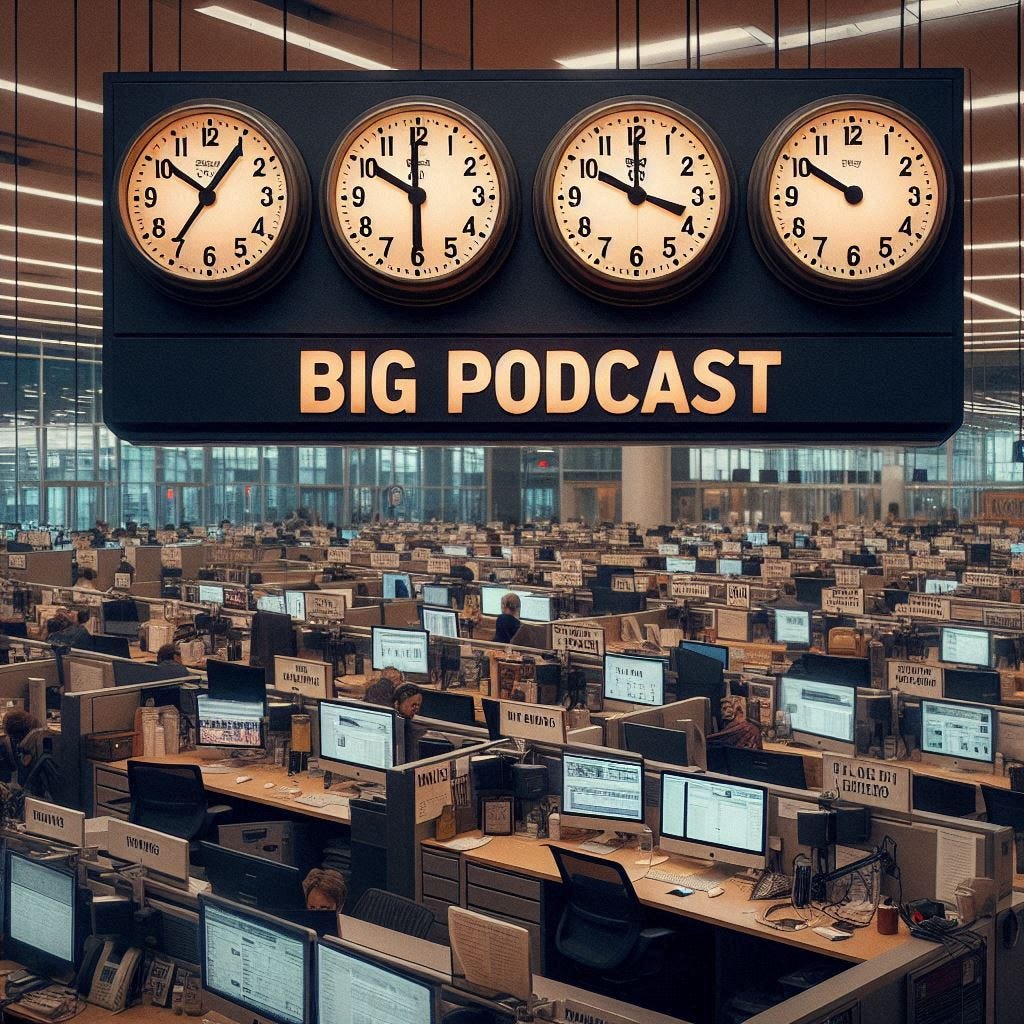A Podcaster's Guide to Scheduling
Time zone confusion is a common challenge for podcasters, especially when working with guests or collaborators from different regions. A simple scheduling error can lead to missed recordings, wasted time, and frustration for everyone involved.
Even when all parties are well-intentioned, differences in local time can easily trip up even the most organized teams. This is especially something to watch for when working with people in areas that don’t switch between Daylight and Standard times or a time zone that’s offset by a fraction of an hour, such as India’s time zone (Indian Standard Time, IST), which is UTC+5:30.
To avoid these pitfalls, it's crucial to establish a standard time reference that all participants can rely on. By doing so, you minimize the risk of mix-ups and create a smoother workflow.
Assuming you don't have an automatic scheduler/calendar program, I recommend using Eastern time (also known as New York time), regardless of where you are in the world. This keeps things consistent and will make sure you're always on time.
Additional Advice for Keeping Your Podcast Production on Track
Clear Communication: Always specify the time zone when scheduling meetings or recording sessions. For example, say "Let's meet at 3 PM Eastern Time" to eliminate ambiguity.
Use Shared Calendars: Even without an automated tool, a shared Google Calendar can help keep everyone updated on scheduled events in one place.
Confirm Details: Before any meeting, send a quick reminder message confirming the time and date, along with the time zone.
Be Mindful of Daylight Saving Time: Keep in mind that daylight saving time changes are not observed in certain areas, and the transition from Standard Time to Daylight Time for the areas that do switch can happen on different dates. For example, one region may start daylight saving time a week or two earlier than another region, leading to a temporary difference between the two areas. Make sure everyone involved in scheduling your session is aware of the date your area is shifting between standard and daylight times.
Flexibility: The world is a big place and no time is “perfect” for everybody. There will be times when somebody involved with a session will have to connect very early in the morning or late at night.
By following these steps, you can help ensure that your podcast runs smoothly, you get episodes recorded (and released) on time, and that all participants feel respected and included in the process.



